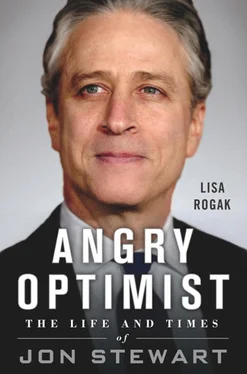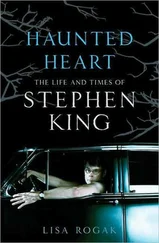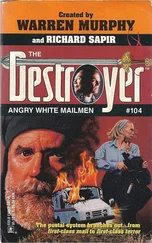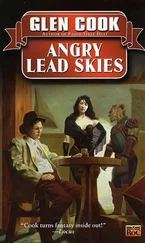“There’s no doubt he’s an important fact of life in this current political environment,” Blitzer said. “Off camera, he’s a very politically aware news junkie.”
In Stewart’s eyes, his exchanges with TV interviewers seemed like a hall of mirrors. “On television,… operatives for both political parties will say, ‘John Kerry’s the most liberal’ or ‘The jobs created are nine thousand dollars less,’ and nobody ever says, ‘Where do you come up with these numbers?’”
This desire to press until he gets a clear answer came out loud and clear when former Republican congressman Henry Bonilla came on the show and Stewart asked him how his party came up with the formula where they declared that then-senator John Edwards was “the fourth most liberal senator.” Bonilla didn’t answer the question and the line between what Stewart does and what journalists do became further blurred when Stewart complained that most TV journalists don’t question their guests like he does.
He didn’t work to hide his contempt for politicians on the show, though he directed his producers and bookers to bring more of them onto the show. “If you feel like comedy program bits are your best effort as far as selling your candidate, good luck to you,” he said.
“These people are salespeople,” he added. “Instead of rotisserie ovens they are selling this idea of preemptive war or social-security reforms.”
At the same time, he declared a basic tenet of the tone of The Daily Show that he’d repeat many times in his own defense. “We’re not provocateurs, we’re not activists; we are reacting for our own catharsis,” he maintained. “There is a line into demagoguery, and we try very hard to express ourselves but not move into, ‘So follow me! And I will lead you to the land of answers, my people!’ You can fall in love with your own idea of common sense. Maybe the nice thing about being a comedian is never having a full belief in yourself to know the answer. So you can say all this stuff, but underneath, you’re going, ‘But of course, I’m fucking idiotic.’ It’s why we don’t lead a lot of marches.”
Of course, this was a completely fresh take on TV, whether it was his show or the more traditional news programs on cable or network, which underscored another reason the shows had for booking him: “These guys have twenty-four hours to fill,” he said. “They’ve got to come up with something. If these guys did what they should be doing, forty-five minutes into their newscast they’d turn to the other guy, say, ‘I’m out of here,’ and then they’d leave.”
But Stewart found it more difficult to hide his disgust at a new and rapidly growing trend in the news media: in the wake of the Gore vs. Bush debacle, some of these shows actively introduced a style of program that was most prominently on display on the CNN show Crossfire, which pitted two people with diametrically opposed viewpoints and let them go at it on live TV. Stewart hated this format because he felt the shows were based purely on opinion with little to do with real news value.
“It’s the WWF,” he said. “These shows are all about conflict. Whatever the situation is, they take a liberal pundit and a conservative pundit—the more extreme the better—and let them yell at each other. It doesn’t reflect anyone’s opinion. It doesn’t matter.”
If anything, his disgust with both sides was hard to hide, and actually turned the self-proclaimed liberal into a voice for the moderate middle, at least temporarily. “We’re moderates!” he proclaimed. “Moderates never mobilize quickly. Moderation doesn’t inspire passion. That’s the thing about being a moderate. You’re not the person standing outside the voting booths in Miami/Dade County to stop people from doing the recount. Moderates have a life. Or they’re home cleaning the gutters or something.”
* * *
Despite Stewart’s contempt for much of the news media, it continued to flock to him, bestowing him with honors and awards and inviting him onto more shows and programs, as well as to host awards shows. He agreed to some offers, including the Grammy Awards in both 2001 and 2002.
He was obviously thrilled when The Daily Show won accolades from establishments he actually respected. The Daily Show won an Emmy for Outstanding Writing for a Variety, Music or Comedy Program in 2001, and Jon felt that somebody out there finally respected him. In addition to winning the same Emmy for writing for the majority of the next decade, The Daily Show would also proceed to win an Emmy for Outstanding Variety, Music or Comedy Series each year for the next decade starting in 2003, an unprecedented feat.
And then, the old world started to knock on his door again. Just as Stewart’s four-year contract with Comedy Central was coming up for renewal in 2003, David Letterman started to float rumors that he was thinking of moving his show to ABC when his own contract expired. As before, Stewart’s name was considered as a possible replacement, but now with his own star in ascendance and so many people clamoring for a piece of him, there was little chance that he would ever come in second place again. In the end, Letterman stayed put at CBS, but intriguingly, ABC upped the ante and offered Stewart his own late-night show to shape as he wished.
As he pondered the offer, however, the network pulled a fast one and instead took the offer to Jimmy Kimmel, who pounced on it. At the time, Kimmel had just launched his own talk show on ABC, Jimmy Kimmel Live!, after serving as cohost of Win Ben Stein’s Money and The Man Show , which aired on Comedy Central in the late 1990s.
Amazingly, despite the accolades and his now iconic status, Stewart still came in second. However, this time he didn’t seem to mind. The truth was that as his star continued to rise, Stewart retreated further inward whenever he was away from the studio. He was gracious with fans whenever approached, offering up an autograph and sometimes a joke, but otherwise he went into deep retreat whenever he wasn’t at the studio. Indeed, one reporter called him “a high-functioning hermit.”
In the early 2000s when it seemed the rest of the country was attached to their computers and the era of smartphone ubiquity was just around the corner, Stewart still didn’t have an e-mail address, at home or at the studio. “Don’t you find that people contact you way more?” he responded when someone asked the reason why. Indeed, he is rarely seen on the Manhattan celebrity circuit, only emerging to make the obligatory appearance at the annual awards shows where he’s been nominated. Stewart is a content homebody, and once he found a kindred spirit in Tracey—whom he married in 2000—he had little reason to stray from his favorite activities away from work: doing the daily Times crossword puzzle, watching TV, and taking the dogs—he had added another pit bull named Monkey to the household—to the park.
“I was a fan of The Little Rascals and Petey was a pit, so maybe that was inherent,” said Stewart. “If you go to the store and buy the generic ‘dog,’ that’s the dog. That little block head and that little dog body, and so energetic and playful. They’re meaty and muscular and fun.”
* * *
And then an interesting thing began to happen. Word on the street and at many college campuses was that many young people who never watched network news were watching The Daily Show regularly and considering it their primary source of news, particularly when it came to the 2004 presidential election season.
“I’m not watching the evening news to figure it out, that’s for sure,” Joe Harper, a twenty-one-year-old college student, commented in early 2004. Instead, he relied on Dennis Miller, Bill Maher, and The Daily Show to get his information. “I trust these guys,” he added. “Their stuff is funnier, but it’s also truer.”
Читать дальше












